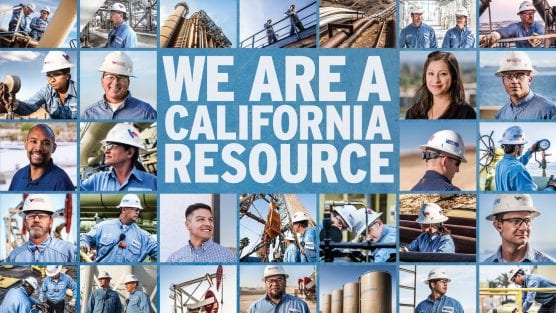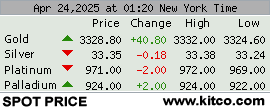California Resources Corporation, or CRC, an independent Santa Clarita-based oil and gas exploration and production company, on Oct. 31 reported net income attributable to common stock of $94 million, or $1.89 per diluted share, for the third quarter of 2019.
Adjusted net income was $17 million, or $0.35 per diluted share.
Operational and financial highlights for the third quarter of 2019 were as follows:
* Reported adjusted EBITDAX1 of $278 million; adjusted EBITDAX margin of 41%; net cash provided by operating activities of $268 million; free cash flow of $151 million after taking into account CRC’s internally funded capital.
* Implemented a more efficient organizational design, resulting in anticipated ongoing annual cost savings of approximately $50 million starting in the fourth quarter of 2019
* Delivered average production of 128,000 barrels of oil equivalent (BOE) per day including 79,000 barrels per day of oil
* Invested $188 million of total capital, including $117 million of internally funded capital
* Drilled 82 wells in the San Joaquin basin, 8 wells in the Los Angeles basin and 1 exploratory well in the Ventura basin, including JV wells
* Repurchased $153 million face value of Second Lien Notes for $90 million
* Secured a credit agreement amendment to provide future flexibility in connection with potential royalty transactions.
Todd Stevens, CRC’s president and chief executive officer, said, “CRC’s start to the second half of the year highlights our continued focus on controlling what we can control by maintaining capital discipline, opportunistically repurchasing debt to strengthen our balance sheet, improving our credit position, reducing costs and enhancing margins. Our previously announced JV partnership with Alpine ramped up quickly, having drilled 52 wells through the end of the third quarter, with the majority of the wells being accretive to production beginning in the fourth quarter. We were also excited to receive a grant from the Department of Energy for a FEED study to advance CO2 capture and sequestration at Elk Hills, which could potentially add well over 150 MMBOE of EOR reserves, reduce our greenhouse gas emissions and in turn lower costs.”
Stevens continued, “Additionally, we are pleased we were able to repurchase over $150 million face value of our Second Lien Notes at a significant discount as well as secure our ninth credit amendment during the quarter. We remain committed to pursuing additional transactions to progress towards our balance sheet goals while driving value through a balanced approach of debt repurchases with investments in our large project inventory.”
Third Quarter 2019 Results
For the third quarter of 2019, CRC reported net income attributable to common stock (CRC net income) of $94 million, or $1.89 per diluted share, compared to $66 million, or $1.32 per diluted share, for the same period of 2018. Adjusted net income for the third quarter of 2019 was $17 million, or $0.35 per diluted share, compared to $41 million, or $0.81 per diluted share, for the same period in 2018. Adjusted net income excluded a net gain of $82 million on debt repurchases, non-cash losses on commodity derivatives of $6 million and income of $1 million, net, for other unusual and infrequent items.
Adjusted EBITDAX for the third quarter of 2019 was $278 million and cash provided by operating activities was $268 million.
Total daily production volumes decreased 6% year-over-year, from 136,000 BOE per day for the third quarter of 2018 to 128,000 BOE per day for the third quarter of 2019. Oil volumes in the third quarter of 2019 averaged 79,000 barrels per day, NGL volumes averaged 16,000 barrels per day and gas volumes averaged 196,000 thousand cubic feet (Mcf) per day. The decrease was due to the Lost Hills divestiture, lower capital investment including fewer workovers, power outages and other factors. The divestiture reduced our third-quarter 2019 production by over 2,000 BOE per day compared to the same quarter of 2018.
Despite lower Brent index prices, our realized crude oil prices, including the effect of settled hedges, increased by $4.78 per barrel from $63.63 in the third quarter of 2018 to $68.41 per barrel in the third quarter of 2019. In the third quarter of 2019, hedge settlements increased our realized crude oil prices by $5.56 per barrel compared to a reduction of $10.10 per barrel in the same prior-year period. Realized NGL prices were $23.55 per barrel, down $22.17 per barrel over the prior-year period as local and national markets continued to experience excess domestic supply coupled with weaker demand due to Los Angeles and Bay area refinery downtimes. Realized natural gas prices were $2.73 per Mcf for the third quarter of 2019, $0.43 per Mcf lower than the same prior-year period due to milder temperatures and more pipeline availability within local California markets in 2019 compared to 2018.
Production costs for the third quarter of 2019 were $221 million, compared to $236 million for the third quarter of 2018. On a per-barrel basis, for the same comparative periods, production costs were $18.82 and $18.92, respectively. The decrease is primarily due to cost savings from the Lost Hills divestiture, lower surface operations costs, lower field employee-related costs and lower downhole maintenance spending, partially offset by higher energy prices. Excluding the effect of PSC-type contracts, production costs on a per-barrel basis for the same comparative periods would have been $17.44 and $17.55, respectively.
General and administrative (G&A) expenses were $66 million for the third quarter of 2019, compared to $81 million for the same prior-year period. The decrease was primarily attributable to a lower stock price resulting in a $13 million decrease in cash-settled stock-based compensation expense.
CRC reported taxes other than on income of $42 million for the third quarter of 2019, compared to $45 million for the same prior-year period. Exploration expense was $5 million for the third quarter of 2019, $1 million higher than the same prior-year period.
Total capital invested during the quarter of 2019 was $188 million, within our guidance. CRC internally funded $117 million, of which $101 million was directed to drilling and capital workovers. CRC’s JV partner Benefit Street Partners (BSP) also invested $5 million, which is included in CRC’s consolidated results. CRC’s JV partners Macquarie Infrastructure and Real Assets Inc. (MIRA) and Alpine Energy Capital, LLC (Alpine) invested an additional $3 million and $63 million, respectively, which are excluded from CRC’s consolidated results.
Cash provided by operating activities for the third quarter of 2019 was $268 million and free cash flow1 was $151 million after taking into account CRC’s internally funded capital.
Nine-Month Results
For the first nine months of 2019, CRC net income was $39 million, or $0.77 per diluted share, compared to a net loss attributable to common stock of $18 million, or $0.38 per diluted share, for the same period of 2018. Including hedge settlements, the 2019 results reflected higher year-over-year revenue despite a lower oil price environment. Adjusted net income1 for the first nine months of 2019 was $34 million, or $0.69 per diluted share, compared with an adjusted net income1 of $35 million, or $0.71 per diluted share, for the same period of 2018. The 2019 adjusted net income1 excluded $99 million of non-cash derivative losses, a net gain of $108 million from debt repurchases and a net $4 million charge related to other unusual and infrequent items.
Total daily production volumes averaged 130,000 BOE per day for the first nine months of 2019, compared with 131,000 BOE per day for the same period in 2018, a decrease of 1 percent. The 2018 volumes reflect two quarters of production from the Elk Hills acquisition. The 2019 volumes reflect the effect of the strategic Lost Hills divestiture that occurred in the second quarter of 2019.
In the first nine months of 2019, realized crude oil prices, including the effect of settled hedges, increased $4.63 per barrel to $68.16 per barrel from $63.53 per barrel for the same period in 2018. Settled hedges increased 2019 realized crude oil prices by $3.13 per barrel, compared with a reduction of $8.00 per barrel for the same period in 2018. Realized NGL prices decreased 29 percent, or $12.67 per barrel to $31.04 per barrel in the first nine months of 2019 from $43.71 per barrel for the same period of 2018. Realized natural gas prices increased $0.09 per Mcf to $2.82 per Mcf, compared with $2.73 per Mcf for the same period in 2018, largely due to stronger California demand.
Production costs for the first nine months of 2019 were $684 million, or $19.32 per BOE, compared to $679 million, or $18.98 per BOE, for the same period in 2018. The increase in production costs was primarily attributable to the Elk Hills transaction, higher surface operations and maintenance costs, energy costs and other items, partially offset by lower downhole maintenance activity and lower costs resulting from the Lost Hills divestiture. Per unit production costs, excluding the effect of PSCs1, were $17.82 and $17.48 per BOE for the first nine months of 2019 and 2018, respectively.
G&A expenses for the first nine months of 2019 were $228 million, compared to $234 million in the prior-year period, with the decrease largely due to lower equity compensation expense in the first nine months of 2019. This decrease was partially offset by higher expenses across a number of functions.
Taxes other than on income of $119 million for the first nine months of 2019 were comparable to the same period of 2018, when taxes were $120 million. Exploration expense of $25 million for the first nine months of 2019 was $7 million higher than the same period of 2018.
CRC’s internally funded capital investment in the first nine months of 2019 totaled $345 million, of which $259 million was directed to drilling and capital workovers. CRC’s JV partners invested $121 million in the first nine months of 2019, all of which was directed to drilling. Of our JV partners’ investment, BSP invested $48 million which is included in CRC’s consolidated results.
Cash provided by operating activities for the first nine months of 2019 was $540 million and free cash flow1 was $195 million after taking into account CRC’s internally funded capital.
Operational Update
In the third quarter of 2019, CRC operated an average of ten drilling rigs, with 3 on primary, 3 on waterfloods and 4 on unconventional production. With total invested capital, we drilled 90 development wells (47 primary, 27 waterflood, and 16 unconventional) and one exploration well. Steamfloods and waterfloods have different production profiles and longer response times than typical conventional wells and, as a result, the full production contribution may not be experienced in the same period that the well is drilled. The San Joaquin basin produced 94,000 BOE per day and operated seven rigs. The Los Angeles basin contributed 24,000 BOE per day of production and operated two rigs directed toward waterflood projects. The Ventura basin produced 5,000 BOE per day and operated one rig focused on exploration and the Sacramento basin, where we had no active CRC drilling program, produced 5,000 BOE per day.
2019 Capital Budget
CRC expects its 2019 internally funded capital program will range from $385 million to $400 million, of which $345 million has been invested through the third quarter of 2019. We have front-loaded our internally funded capital investments for 2019. With additional investment from new and existing JV partners, CRC anticipates JV investment of $200 to $225 million for 2019, of which $121 million has been invested through the third quarter of 2019. CRC anticipates a total capital program of approximately $585 to $625 million for the year. Our 2019 capital is focused on oil and largely directed to short payout projects, such as primary drilling of both vertical and lateral wells, capital workovers and low-risk projects including waterflood and steamflood investments that maintain base production.
Recent Joint Venture
In July 2019, we entered into a development agreement with Alpine to develop portions of CRC’s Elk Hills field. Alpine is a joint venture between subsidiaries of Colony Capital, Inc. (Colony) and Equity Group Investments. Alpine committed to invest $320 million, which may be increased to a total investment of $500 million, subject to the mutual agreement of the parties. The initial commitment will cover multiple development opportunities and is intended to be invested over approximately three years in accordance with a 275-well development plan. Alpine will fund 100% of the development wells and will earn a 90% working interest in those wells. If Alpine receives an agreed upon return, CRC’s working interest in those wells will increase from 10% to 82.5%.
In connection with this joint venture, Colony received a warrant to purchase up to 1.25 million shares of CRC’s common stock, at an exercise price of $40 per share.
Repurchases and Balance Sheet Update
During the third quarter of 2019, CRC repurchased $153 million in face value of Second Lien Notes for $90 million, bringing the aggregate face value repurchased since issuance to $412 million, including $229 million during the first nine months of 2019. Net debt outstanding at the end of the third quarter was under $5.0 billion. CRC also secured a ninth amendment to our credit agreement which provides future flexibility in connection with potential royalty transactions.
The semi-annual borrowing base review under the Company’s 2014 Revolving Credit Facility is finalized in early May and early November of each year. The process is currently underway and is well advanced.
Hedging Update
CRC continues to execute an opportunistic hedging program to protect its cash flow, operating margins and capital program, while maintaining adequate liquidity. For the fourth quarter of 2019, CRC has protected the downside price risk on 35,000 barrels per day at approximately $76 Brent with put spreads. These put spreads provide full upside to oil price movements and downside protection when Brent drops below $60 per barrel, at which point we receive Brent plus approximately $16 per barrel. For the first and second quarters of 2020, CRC has protected the downside risk of 30,000 and 15,000 barrels per day at approximately $71 Brent and $68 Brent, respectively. These put spreads provide downside price protection when Brent prices drop below $57 and $55 per barrel in the first and second quarters, respectively, at which point CRC receives Brent plus approximately $14 per barrel. CRC also entered into a swap for 5,000 barrels per day in the second quarter of 2020 at approximately $70 Brent, which may be increased by another 5,000 barrels per day at the same price at the option of the counterparties. For the third and fourth quarters of 2020, CRC has protected the downside risk of 10,000 and 5,000 barrels per day, respectively, at $65 per barrel. These put spreads provide downside protection when Brent prices drop below $55, at which point CRC receives Brent plus approximately $10 per barrel.
Conference Call Details
A digital replay of the November 4 conference call will be archived for approximately 30 days and supplemental slides for the conference call will be available online in the Investor Relations section of www.crc.com.
About California Resources Corporation
California Resources Corporation is the largest oil and natural gas exploration and production company in California on a gross-operated basis. CRC operates its world-class resource base exclusively within the State of California, applying complementary and integrated infrastructure to gather, process and market its production. Using advanced technology, California Resources Corporation focuses on safely and responsibly supplying affordable energy for California by Californians.
For more results summaries and statistics, click here.
Like this:
Like Loading...
Related





 Tweet This
Tweet This Facebook
Facebook Digg This
Digg This Bookmark
Bookmark Stumble
Stumble RSS
RSS




























REAL NAMES ONLY: All posters must use their real individual or business name. This applies equally to Twitter account holders who use a nickname.
0 Comments
You can be the first one to leave a comment.